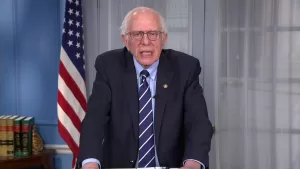When the Biden administration announced its debt relief plan in late August, the timing was fitting. According to the Hebrew calendar, this last year, which ended on September 25, was the Shemitah year, a year where debts are forgiven. In the Bible, canceling debt is just one among a set of jubilee laws, which includes freeing the enslaved, feeding the poor, paying fair wages, and conserving and protecting overworked land. As a biblical scholar and pastor, I am often struck by the moral logic that undergirds these laws. Indeed, many ancient societies understood jubilee to be not only a compassionate response to unequal economic conditions, but a necessary step to keep themselves from buckling under the weight of inequality. In their eyes, debt and wider injustice was the cause of two forms of death: the economic and spiritual death of a society, and individual, avoidable death among their people.
In the U.S. debt has reached new heights, including $1.6 trillion in student debt, up 100 percent since 2010. Nearly half of these student debt borrowers owe less than $20,000, so the White House’s announcement that to cancel $10,000 for people earning less than $125,000 (up to $250,000 for a household) and $20,000 for Pell Grant recipients is significant. It amounts to the cancellation of up to 20 million loans. But responses to the new measure have been divided — many have celebrated it and called for more, while others have raised alarm about whether we can afford it as a nation and challenged it.
In fact, since the time of the announcement, six Republican-led states are in the process of suing the administration, claiming that President Biden overstepped executive powers with the debt relief program. In response, the Biden administration has scaled back eligibility requirements, eliminating borrowers whose federal loans were owned by private banks and subject to the lawsuits. NPR describes the impact of such a reversal: “People who took out Perkins loans and Federal Family Education Loans, the mainstay of the federal student loan program until 2010, may no longer be eligible for forgiveness.”
The justification to gut the loan forgiveness program follows the same tired arguments about who “deserves” to have their debt canceled, pitting struggling people against each other. A particularly divisive statement on this came from Arkansas Attorney General Leslie Rutledge, who claimed, “It’s patently unfair to saddle hard-working Americans with the loan debt of those who chose to go to college.”
In reality, the debate between the “deserving” and “undeserving” is a sleight of hand that is useful for the rich and powerful. It obscures the structural nature of debt and its role in hyper-charging inequality. Today, nearly 40 percent of the country lives in poverty or is one $400 emergency away from economic ruin, and personal debt that now totals nearly $16 trillion is in no small part to blame. After all, canceling debt and putting more money into the pockets of everyday people who will spend it on things like food and household items is both moral policy making and good economics. So, when narratives about scarcity, affordability and deservingness are invoked to thwart the cancellation of debt, we should approach them with a healthy dose of skepticism.
Over the last few weeks, politicians have been clamoring about scarcity, complaining that we can’t afford to cancel even a modest amount of debt and spending time and resources undoing the progress the administration made. But how can that be the case when the Pentagon has received increases in funding every year over the last decade (to a record $782 billion for 2022 — more than it even requested) and the Federal Reserve bailed out Wall Street in the early days of the pandemic for nearly as much as it would cost to cancel all student debt?
Moreover, Biden’s student loan plan is small compared to other debt that has been canceled in the last five years with very little opposition, including $659 billion in Paycheck Protection Program loans that mostly went to wealthy business owners during the pandemic and $1.7 trillion in taxes owed by wealthy corporations under the 2017 Trump tax cuts. Scarcity itself is a myth, seeming only to exist as an insurmountable problem when the needs of the poor are under consideration.
Rather, it is not debt cancellation that the nation can’t afford — it is widening inequality that is too costly. The Bible is a good reference on this. Deuteronomy 15 talks about canceling loans obtained for survival for the sake of a healthy society, and we need only look at the median income of people with college degrees versus those without to see that student loans are indeed about survival. The biblical tradition of debt relief is the centerpiece of God’s call to abolish poverty, and debt cancellation is understood as necessary when poverty proliferates amid plenty and survival becomes a question of wide concern.
Our elected officials would do well to take heed of the lessons of the book they so often like to reference. Rather than attacking debt relief, they could build on the advances made on student debt to enact a fuller slate of jubilee policies that uplift everyone near the bottom. When it comes to education, this could include wider debt cancellation, but also other structural changes like free, quality and diverse education from pre-K through university. There is no reason to pit loan cancellation against reforms that make education truly available to everyone. After all, if we value young people today and the nation’s future, we need both.
But instead of pursuing the divine mandate of jubilee, we are witnessing a society overcome with debt and death. The most recent numbers are dire to the extreme: Alongside growing debt, U.S. life expectancy has stagnated for two decades and in 2015, it actually began to drop in a way unseen in modern history. The country’s disastrous response to the COVID-19 pandemic only accelerated this trend and revealed systemic failure in our health care system — by comparison, our peer countries experienced only one-third as much of a decline in life expectancy and then saw an increase as they adopted more effective COVID-19 responses.
According to a 2022 report produced by the Poor People’s Campaign (which I co-chair alongside Rev. Dr. William Barber), poor and low-income U.S. counties experienced death rates that were twice as high as richer ones, and at different phases of the pandemic, their death rates were up to five times higher. This occurred in part because of the lack of health care for tens of millions across the country. In the worst public health crisis in a century, Congress did not expand Medicaid, leaving millions of people in the states that suffered the steepest decline in health outcomes without access to affordable health care. In fact, at the same time that overall health and life expectancy was on the decline, health care company profits were on the rise.
Connected to the issue of our lowered life expectancy is the growing crisis of what some call “deaths of despair” — from suicide, drug overdose and alcoholism. Traveling around the country, I have met with the families of small farmers whose suicide rates are rising because they are up to their ears in commercial debt. I have also met the friends and spouses of some of the 20 veterans who commit suicide every day, more than those killed as active duty servicepeople on the front lines of our most recent wars. But the framework of “deaths of despair” is often misleading. Even in the case of suicides and overdoses, a large part of what is driving these deaths is outright and egregious neglect and injustice.
Aaron Scott, co-founder of Chaplains on the Harbor, an organization committed to serving poor people on the rural coast of Washington State, has buried dozens of poor and homeless members who died from overdose and suicide. He also had to bury his grandpa after he took his own life. Scott recently explained to me, “When I think of my grandpa’s suicide, as much as he was personally experiencing despair, the reason he died is because he couldn’t access the mental health care my grandma was trying to get him connected to. I’ve seen a number of blatant medical neglect deaths that conservative county coroners refuse to label as medical neglect because of the poverty and IV drug use history of the deceased — so these get recorded as drug-related deaths even though the hospital simply refused care.”
In New York City, where I live, and where life expectancy dropped by three years in 2020, there is a mass grave of poor people on Hart Island, in the middle of the Long Island Sound. There are countless other “potter’s fields” (also known as “pauper’s graves”) across the country, and yet few know the true brutality of these graveyards for the poor. More than 1 million people have been buried on Hart Island since the Civil War, including thousands of victims of epidemics like the flu of 1918, AIDS and COVID-19. These people are buried in unidentified graves, with 150 adults or 1,000 infants in a plot. And although some may have been called home when it was their time, so many continue to prematurely die because they live in a society that neglects even their most basic needs. Now, dignity is denied to them not only in life, but in death itself.
Indeed, the United States has become far too comfortable with poverty and death, and the consequence, unfortunately, is more of both. But if the news of our declining life expectancy is a wake-up call of the most elemental nature, recent action on student debt (if it isn’t completely undone) is a small glimpse into what it could look like for everyone to have the right to live. That is what jubilee has always been about — preserving life and creating a more just and balanced society. Nothing less is required of us if we want the same today.
(Liz Theoharis is a theologian, ordained minister and anti-poverty activist. Director of the Kairos Center for Religions, Rights and Social Justice at Union Theological Seminary and co-chair of the Poor People’s Campaign: A National Call for Moral Revival, she is the author of Always With Us? What Jesus Really Said About the Poor. She teaches at Union Theological Seminary in New York City. Courtesy: Truthout, a US nonprofit news organization dedicated to providing independent reporting and commentary on a diverse range of social justice issues.)




